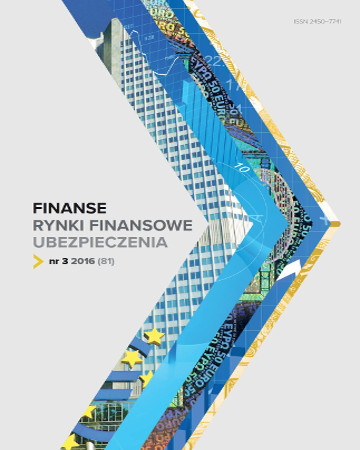
ISSN: 2450-7741
eISSN: 2300-4460
OAI
DOI: 10.18276/frfu.2016.2.80/1-09


Issue archive /
2/2016
Model zbilansowanej karty wyników pracownika naukowo-dydaktycznego rozpoczynającego karierę zawodową – wybrane zagadnienia
(Model of the Balanced Scorecard for the Academinc Teacher Beginning His Career – the Selected Issues)
| Authors: | Ilona Kędzierska-Bujak |
| Keywords: | balanced scorecard academic teacher |
| Data publikacji całości: | 2016 |
| Page range: | 12 (83-94) |
Abstract
Purpose – the main aim of this paper is to present the proposition of the balanced scorecard which
can be create for the academic teacher who begins his professional career at university.
Design/methodology/approach – research method used while writing the article were the literature study and the
Author’s reflection as well as deductive reasoning
Findings – it is possible to create the personal balanced scorecard for an academic teacher, who begins his career
at the university. Personal Balanced Scorecard allows to find a balance between the objective of the professional
and private goals, which helps in becoming more efficient and motivated for work employee. By combining
the employee objectives and the university objectives can improve the implementation of the strategy at the
university. Due to awareness of the level of achievement of objectives and task assigned to him it will be possible
to determinate the need for performing of the correction actions in the areas in which employee failed to
achieve its effect.
Originality/value – this article shows the examples of objectives and measures that can be used in the context
of the fundamentals perspectives of the personal balanced scorecard when it is created for the academic teacher
Download file
Article file
Bibliography
| 1. | Evans, J.R., Lindsay, W.M. (2009). Managing for Quality and Performance Exellence. Mason: South-Western Cangage |
| 2. | Learning Inc. |
| 3. | Jerling, K. (1996). Education, Training, Development in Organizations. Cape Town: Pearson South Africa. |
| 4. | Kędzierska, I. (2011a). Możliwość zastosowania kompleksowej karty wyników na uczelniach wyższych do podniesienia |
| 5. | ich konkurencyjności oraz rozwoju pracowników. Zeszyty Naukowe Uniwersytetu Szczecińskiego, |
| 6. | 668, Finanse, Rynki Finansowe, Ubezpieczenia, 41, 376–387. |
| 7. | Kędzierska, I. (2011b). Wybrane zagadnienia z zakresu organizacyjnej i osobistej zbilansowanej karty wyników. |
| 8. | W: E. Nowak, M. Nieplowicz (red.), Rachunek kosztów i pomiar dokonań (s. 205–216). Wrocław: Wyd. UE |
| 9. | we Wrocławiu. |
| 10. | Kolb, D.A. (1984). Experiential Learning. Englewood Cliffs, NJ.: Prentice Hall. |
| 11. | Rampersad, H.K. (2004). Kompleksowa karta wyników. Jak przekształcać zarządzanie, aby postępując uczciwie |
| 12. | osiągać doskonałe wyniki. Warszawa: Placet. |
| 13. | Ustawa z 27.07.2015 – Prawo o szkolnictwie wyższym. Dz.U. 2005, nr 164, poz. 1365, z późn. zm. |
| 14. | Vos, M., Schoemaker, H. (2004). Accountability of Communication Management. A Balanced Scorecard for Communications |
| 15. | Quality. Utrecht: Lemma Publishers. |
| 16. | Woodall, J., Winstanley, D. (1998), Management Development. Strategy and Practice. Oxford: Blackwell Business. |